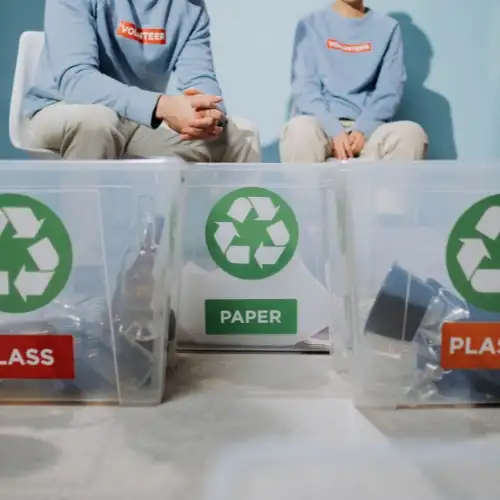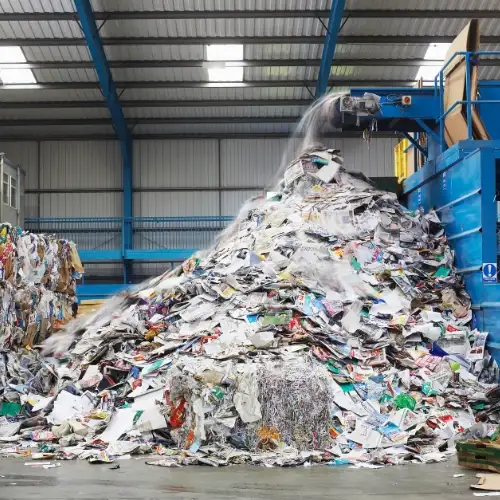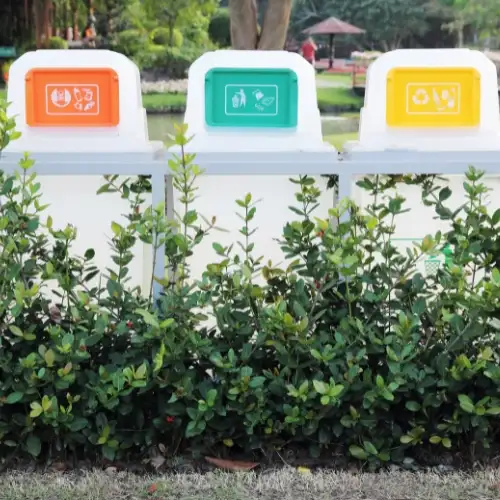It is important to provide recycling projects in all countries because of their significant importance in waste disposal.
And all products that have been used can be reused, but with lower quality.
These are ideas that increase resources in society and reduce environmental problems, but it is important to know the type of waste or materials that can be recycled because not all materials are recyclable.
One of the most prominent benefits of recycling waste and others:
- Protecting natural resources through recycling.
- Getting rid of various wastes like household, old clothes, or plastic.
- Providing job opportunities for many young people.
- Disposing of waste increases the beauty of the environment and protects it from unpleasant views.
Recycling… wasted resources
The recycling process aims at environmental sustainability by replacing raw material inputs and redirecting waste outputs outside the economic system.
However, there are many countries that do not apply this law, which increases wasted resources that could be recycled and used to increase productivity within the city, thus contributing to the development of the countries.
There are many materials that cannot be recycled, such as:
- Fast coffee cups that use cardboard with a thin layer of plastic, so they cannot be recycled.
- Cardboard cannot be recycled when the pieces are small and torn.
- Plastic bags that are not recyclable because they are thin bags that cannot be reused.
- Gift wraps and ribbons that cannot be reused and may cause problems in machines.
- Ready meal containers made of paper cannot be reused because they may contain a lot of contaminated food waste.
- Batteries that cannot be reused.
- Pens and small plastic tools.
What is the meaning of recycling?
Recycling is one of the processes that reduces environmental problems, so that waste is converted into new elements and serves as an alternative to traditional waste disposal.
This saves materials and helps reduce greenhouse gas emissions, air and water pollution.
It also reduces economic problems by using all possible waste and reusable materials, reducing the use of new raw materials and energy consumption.

There are also several drawbacks to recycling, such as:
- The need for large capital investment, careful planning and work to provide the necessary machinery and materials for sanitizing the products.
- As well as capital for training workers to use the machinery.
- Recycling sites are often unsanitary and unsafe, so caution must be exercised when working in the area.
- There is waste that can cause infectious diseases and dangerous chemicals, so caution is required when collecting waste.
- Some materials cannot be recycled, such as pollution of water and drinking water.
- Recycled materials are not of the same quality as new materials.
- Some materials have been recycled several times and may cause diseases and problems during manufacturing.
What are the most important projects for recycling?
Advanced countries work to provide strict laws regarding waste.
Some countries such as Korea, Japan, China, and others have established waste containers for each type like clothing, plastic, and glass.
There are many projects provided in several countries, such as:
- The electronic waste recycling project for mobile phones, computers, tablets, and batteries, where they are recycled into metals and raw materials.
- One of the most important projects is the recycling of car tires, which produces rubber that can be used to manufacture car brake pads.
- Recycling used car oils is another project aimed at proper disposal of used oils to protect the environment.
- There’s the production of wood from palm waste, where 25% of it is produced into fibers, used in furniture and wood industries.
The importance of recycling
There are many advantages and benefits that result from recycling projects, so it is important for all countries in the world to try to follow these projects that contribute to the development of countries in all environmental and economic aspects.
The most important benefits of recycling all products are:
- Reducing the damage from waste incineration, which leads to ash harmful for the environment.
- Preserving resources of metal materials and water for the benefit of future generations.
- Limiting health damage.
- Boosting the country’s economy.
- Lowering the costs of manufactured products from recyclable materials.
- Preserving oxygen levels in the environment.

Benefits of Recycling
Special systems are implemented in most countries in homes and schools to teach children to try to dispose of glass, plastic, and paper separately in dedicated containers.
This is a way of teaching children to be more effective for themselves and the environment.
In addition to providing these systems within homes, many punishments are provided for people who do not comply with the rules:
- There is a high fine for those who do not comply with the health and environmental guidelines when sorting waste, whether for homes or for workers in this field.
- The license to work in this field is suspended for more than 6 months in some countries.
- A large fine for trading toxic materials, waste, and hazardous residues.
- Fine for those who trade in waste resulting from medical activities.
- With a large fine and suspension of the license for facilities that do not comply with the necessary health and sterilization conditions for storing and treating materials.
- And there is a punishment of prison for people who use empty containers resulting from hazardous materials or use products resulting from recycling.
Paper recycling
One of the most important projects in many countries is paper recycling from books, newspapers, old paper money, and other materials, resulting in the production of new paper.
This process helps reduce accumulated paper waste, pollution, and greenhouse gas emissions.
There are many types of paper that can be recycled, while others cannot, such as newspapers, paper stained with food or grease, coated paper and used paper towels.
There are several steps for recycling paper, including:
- Paper is collected by individuals in homes, companies, universities, and other places in special containers.
- The paper is sorted according to its quality and size, so that similar papers are placed in one box.
- It is then transported to factories for inspection and sterilization based on its cleanliness, type and the type of surface treatment it needs.
- Lightweight paper such as newspapers is separated from thick paper such as bookbinding to produce different types of paper products.
- The paper is cut and mixed.
- The paper fibers are processed and separated using large amounts of water mixed with chemicals such as hydrogen peroxide.
- It is washed and the ink is removed through chemical substances and air bubbles, along with other materials to bleach the pulp.
- It is then dried and cut into small sheets.
Recycling household products
There are many household ideas used to recycle household products, so there is no need to go to the factory for recycling.
This simple project saves you from getting rid of old materials while benefiting from them at the same time and turning them into something useful and innovative.
There are many objectives for recycling household products, the most important of which are:
- Reducing external environmental pollution and reducing diseases.
- Reducing the proliferation of bacteria while saving money.
- Reducing the depletion of natural resources.

How is clothing recycled?
Many people are looking for a way to get rid of their old used clothes, so you can donate clothes to orphans or place them in special boxes and send them to special centers for repair and reuse.
There is great importance in recycling old clothes, including:
- Old clothes cause environmental pollution through textile waste, which emits harmful emissions, so when reused, the biggest environmental problems are eliminated.
- When clothes are recycled, charities are supported when they donate.
- Supporting sustainable development and environmental preservation.
- Textile waste takes 200 years to decompose, so this affects the environment.
